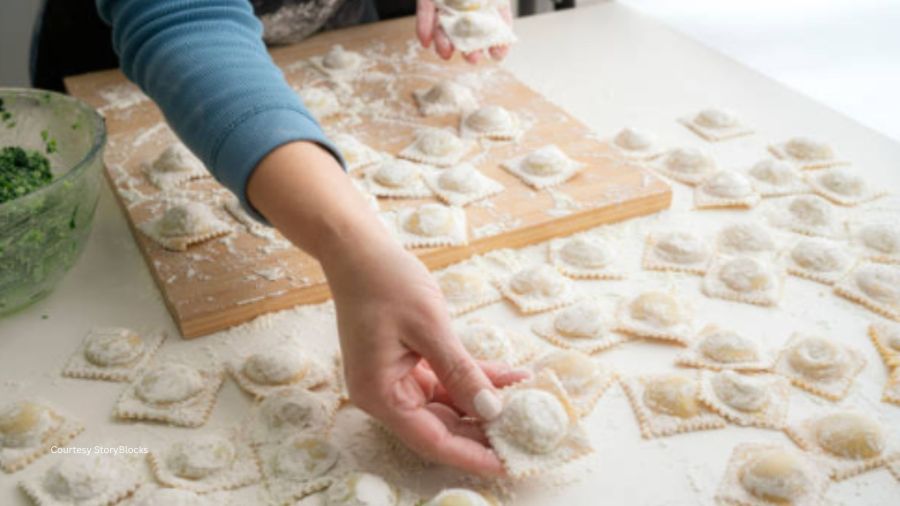HONOLULU (KHON2) — Baking at home has always been part of life in Hawaiʻi. From sweet breads and butter mochi to cookies for school fundraisers, families often share what they make in their own kitchens.
Until recently, though, selling those baked goods under state law was more limited than many people realized.
In 2024, Governor Josh Green, M.D. signed House Bill 2144. The measure directs the Department of Health to update its rules on cottage food, which is the legal term for food made at home for sale.
These changes mean more opportunities for local families and new options for customers.
What the old rules allowed
The Department of Health has long kept a list of foods that can be sold from home kitchens. The list includes only items that are considered nonhazardous. That means they can stay safe without refrigeration.
The list covers breads, rolls, cookies, cakes, candies, granola, popcorn, jams, jellies, cereals, mochi and similar shelf-stable products.
Anything that might spoil or grow bacteria was off limits. Fermented foods such as kimchi or sauerkraut were not allowed. Neither were pickled nor acidified vegetables, dried meats or garlic in oil. Canned or bottled foods and low-acid items were also prohibited.
On top of that, sellers could only do business in person. They had to hand over the food directly to the customer.
Online orders, phone sales, mail delivery and selling through a store or farmers market booth were not permitted. For many, these limits meant that home baking could be only a side activity rather than a real source of income.
What the new law changes
House Bill 2144 tells the Department of Health to expand both the menu of what can be sold and the ways those items reach customers.
While meat and seafood will remain off the list, the law makes clear that many other products will be added. The bill also requires that sales no longer be restricted to face-to-face transactions.
Home cooks in Honolulu and across Hawaiʻi can take orders online or by phone. They can also be able to sell through third-party vendors, which could include small retail shops.
Mail-order options are also expected. These changes are aimed at helping small producers grow their reach and letting more customers access local, homemade foods.
Why it matters
Cottage food rules shape how people share culture and traditions. Allowing more products and easier sales gives families a way to earn income without having to rent commercial kitchen space. It also adds diversity to Hawaiʻi’s food system.
Supporters say the law creates more opportunities for small businesses. Families may choose to start by selling baked goods and later expand into bigger ventures.
Communities benefit too, since locally made products keep more money circulating close to home.
The Department of Health is the agency responsible for writing detailed rules to carry out the law. Those rules decide exactly which foods qualify and how sales are handled.
Steps to sell home-baked goods legally
1. Confirm your kitchen is your home: You must prepare all foods in your primary home. A commercial kitchen or a second home does not qualify.
2. Complete a food safety training course: You must take a food handler training course that the Hawaiʻi Department of Health approves or that is ANSI-accredited. The course can be online or in person and must be renewed every three years.
3. Stick to allowed foods: Your products must be low-risk shelf-stable items. These include breads, rolls, mochi, cakes, cookies, candies, jams, jellies, preserves, cereals, granola, trail mixes and popcorn. Foods that require refrigeration such as custard pies or cream puffs are not allowed.
4. Meet labeling requirements: Each label must include the following information.
- The statement “Made in a home kitchen not routinely inspected by the Department of Health”.
- The common or descriptive name of the product.
- A full ingredient list if there is more than one ingredient, listed by weight.
- Your name and contact information.
- Allergen information should also be included where needed.
5. Sell directly to consumers: You can sell your products directly from home and at farmers markets, craft fairs, fundraisers or roadside stands. You cannot sell through restaurants, grocery stores, via mail order or online.
6. Check events for extra permit needs: Some events may need a Special Event Food Establishment Permit, especially if you plan to serve unpackaged food samples or operate a booth. This is separate from DOH-required food safety training.
7. No sales cap applies: There is currently no limit on how much income you can earn from selling homemade food under the cottage food rules in Hawaiʻi.
8. Keep up with pending rule changes: Thanks to House Bill 2144, new rules may soon allow online and third-party sales. For now, only in-person direct sales are permitted, but this could change.
Honolulu and all of Hawaiʻi are at a turning point in how home kitchens can connect with the public. The law signed in 2024 requires health officials to expand the list of foods that may be sold and to allow new methods such as online orders and store sales.
You can click here to access the DOH’s Starting a Home-made Food Operation guide, here for their Food Safety Branch (DOH Sanitation Division) and here for their Food Safety Education Program. You can click here Cottage Food Law Overview.
You can click here to read more about the passage of HB2144.
The future of cottage food in Hawaiʻi looks ready to rise to meet the challenges and needs for locally sourced and prepared foods.
